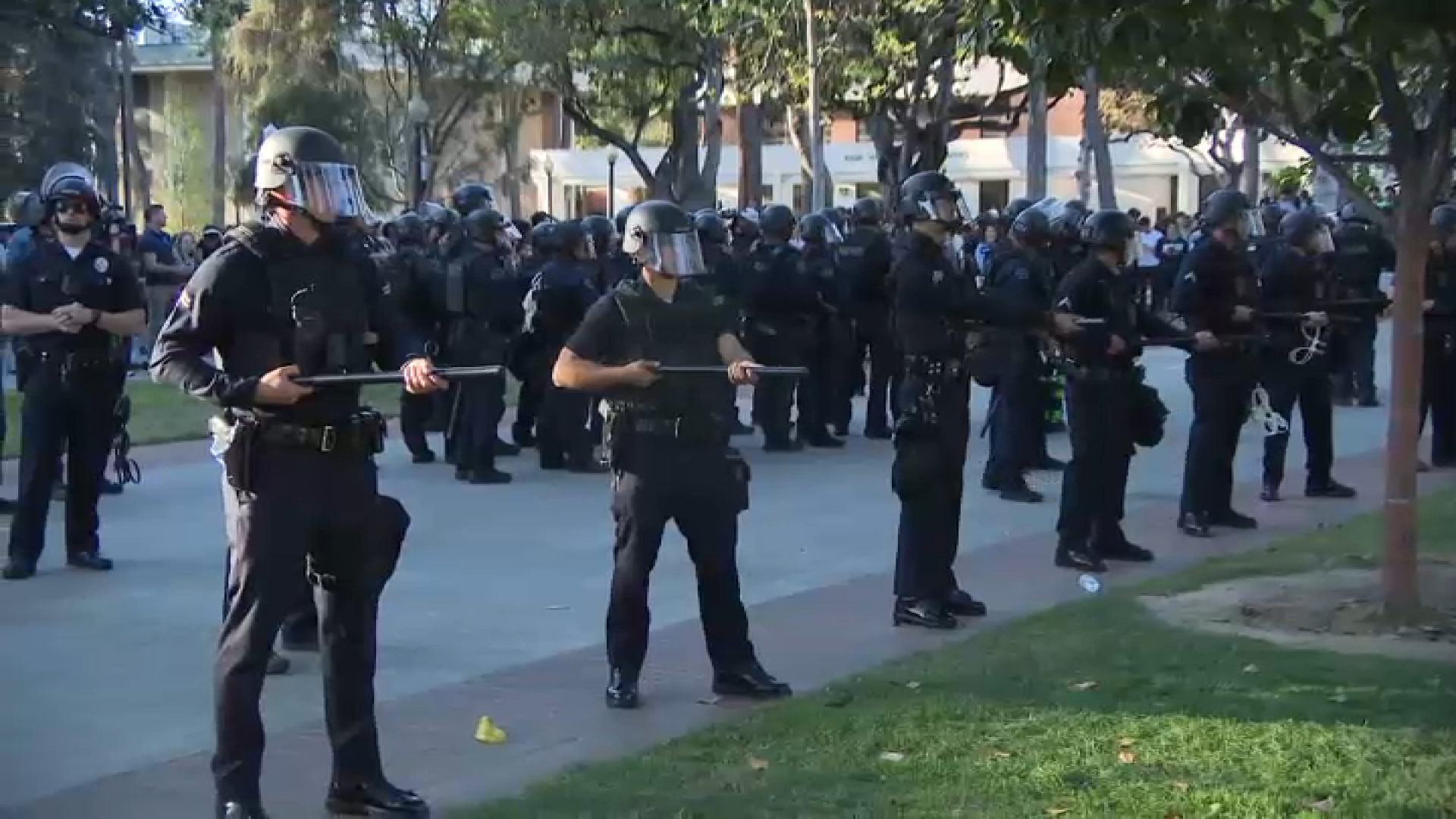Before the recent scandal came to light at Miramonte Elementary, the Florence school faced a series of challenges, some of which may have helped foster an environment that led to sexual abuse allegations, said experts.
More than half of the 1,500 students were not fluent or anywhere near proficient in English, and while test scores were on the rise, the school consistently missed federal benchmarks.
Last year, Miramonte's student body -- one of the largest in the state -- was 98 percent Latino, according to the California Department of Education. Typically in communities with a high immigrant population, parents have "a lot of respect for people of authority, especially of the principals and teachers," said Darline Robles, a professor of Clinical Education at the USC Rossier School of Education.
"Now, I'm sure there is a sense among the community of did we trust too much?" Robles said.
On Jan. 31, former Miramonte teacher Mark Berndt was arrested on suspicion of felony molestation with 23 children ages 6 to 10 years old. Less than a week later, Miramonte teacher Martin Springer was arrested on suspicion of committing lewd acts on a child.
The size of the school creates an environment where students -- and teachers -- can disappear, said California Federation of Teachers president Joshua Peschthalt, who saw the problems of overpopulation play out when he worked at Manual Arts High School in South LA.
"It's not a coincidence that [the scandal] happened in a school where it's predominantly people of color, in a working-class community, in an overcrowded school," Peschthalt said. "You wouldn’t find this in an affluent area across town."
Local
Get Los Angeles's latest local news on crime, entertainment, weather, schools, COVID, cost of living and more. Here's your go-to source for today's LA news.
Blaming a lack of funding and resources, Peschtalt points to overpopulation as an indicator that other school services failed, possibly helping to facilitate the scandal.
"When the system is stretched to its limits, they're not putting resources into teacher evaluations and extensive training for teachers," Peschthalt said.
Gloria Polanco, mother of a second and third grader at Miramonte, is highly involved with the school, but confirms the naïveté that exists among many in the community.
"Some of these people, the traditions in their countries see these teachers as mentors, as people you admire. They're the second person after the parents to guide you in your life," Polanco said. "They didn't believe something like this could happen."
Polanco -- who came to the United States at 13, completed high school, and now studies child development at a community college -- also points to a lack of education among parents.
Half of Miramonte parents didn't graduate from high school, and only 10 percent graduated from college or graduate school, according to the CDE.
"Most are single parents, many are immigrants. They try their best, but most just don't have enough information," Polanco said.
Despite their lack of higher education themselves, immigrant Latino parents place a huge emphasis on education, said Robles, who knows these types of communities well both as a former superintendent and a leader in the Latino community.
Robles has hope for the re-staffed school, citing a time when she was a superintendent in Montebello in the 1980s and an earthquake led to half a new staff and a renewed sense of community among the school.
In fact, replacing an entire staff of teachers is one measure that can be mandated when a school needs to be completely overhauled because of failing academics and risk of losing accreditation, according to the U.S. Department of Education.
Though parents are now welcomed exuberantly by the administration and greeted when they bring in their children, Polanco said, this wasn't always the case.
Former Miramonte principal Martin Sandoval held parent meetings at 2 p.m., a time when many parents were working so attendance was low. Polanco tried to convince the administration to change meetings to the evenings, but the administration wouldn't budge.
"He was never really willing to talk to us," Polanco said. "There was this feeling that they didn't do enough to open the doors to parents."
Miramonte Elementary's Academic Performance Index, intended to measure academic performance based on a myriad of standardized tests, ranks among the lowest of California public elementary schools, according to the CDE.
With a score of 702, Miramonte's 2010 API was just under LAUSD's average.
Eighty-two percent of the district's students are classified as "socioeconomically disadvantaged" and just more than half are identified as "english learners," showing that the demographics and ensuing issues at Miramonte are not uncommon in the district.
"You have lots of the very poor who don't even know what their rights are," Martha Escutia, a former state senator who once represented the south Los Angeles neighborhood, told USA Today. "You have the undercurrent of immigration, undercurrent of poverty. Miramonte is not Malibu. It's not a sophisticated community. It's a perfect recipe for a predator."
Polanco and other parents want Miramonte to be an example of what can happen in low-income schools, and have their misfortune lead to change in the system of sexual abuse education and protocol.
"Mayor Villaraigosa came from a low-income family," Polanco said. "Don't think the low-income communities are not worth it."
Follow NBCLA for the latest LA news, events and entertainment: Twitter: @NBCLA // Facebook: NBCLA



